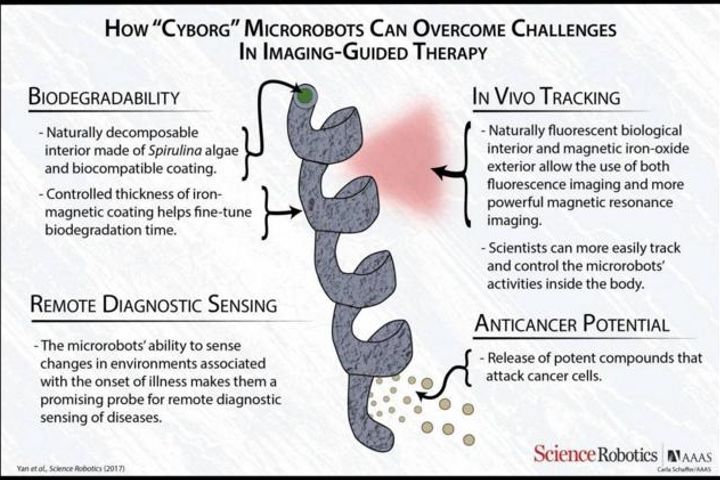 Scientists From Chinese, UK Universities Develop World's First Nanorobot for Medical Uses
Scientists From Chinese, UK Universities Develop World's First Nanorobot for Medical Uses(Yicai Global) Nov. 27 -- A team of researchers led by Prof. Zhang Li from the Chinese University of Hong Kong and Prof. Kostas Kostarelos from the University of Manchester have developed the world's first biodegradable nano-robot, which can diagnose diseases or deliver drugs within the human body, DeepTech reported, citing a paper published in Science Robotics journal.
The robot is made of Spirulina algae and has a magnetic iron coating which allows researchers to fine tune the rate of biodegradation. Using the magnetic field, researchers can remotely control the robot to a high precision while it is inside a body.
"Our micro-robots have the ability to sense changes in environments associated with the onset of illness and that makes them a promising probe for remote diagnostic sensing of diseases," said Zhang. "We must now develop this technology further so we are able to fine tune this image–guided therapy and create a proof of concept for the engineering of multifunctional micro-robotic and nano-robotic devices."
"We are still in early days of development since any such robotic system would need to be either completely and safely degraded, or it will need to be removed or excreted from the body after it has finished its work," Kostarelos added. "But nevertheless, our work provides the first ever example of how this could be possibly achieved by degradation. The potential of these bots for controlled navigation in hard-to-reach cavities of the human body makes them promising miniaturized robotic tools to diagnose and treat diseases which is minimally invasive."